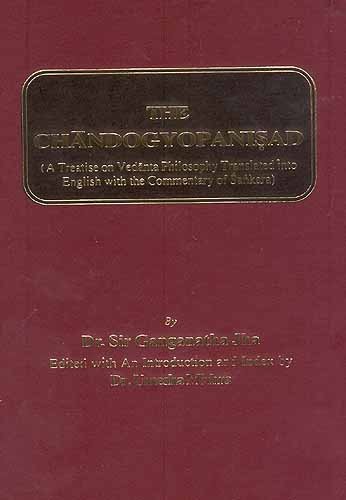Chandogya Upanishad (Shankara Bhashya)
by Ganganatha Jha | 1942 | 149,749 words | ISBN-10: 8170842840 | ISBN-13: 9788170842842
This is the English translation of the Chandogya Upanishad, an ancient philosophical text originally written in Sanksrit and dating to at least the 8th century BCE. Having eight chapters (adhyayas) and many sub-sections (khandas), this text is counted among the largest of it's kind. The Chandogya Upanishad, being connected to the Samaveda, represen...
Section 7.22 (twenty-second khaṇḍa) (one text)
Upaniṣad text:
‘When one attains Bliss, then he acts; without attaining Bliss, he does not act; only on attaining Bliss, does one act. But Bliss itself should be sought to be understood.’—‘Revered sir, I wish to understand Bliss’.—(1)
Commentary (Śaṅkara Bhāṣya):
The said Acting also comes about only when one attains Bliss; that is, when he makes up his mind to the effect that ‘the Highest Bliss, going to be described, has to be attained by me’;—just as, in the case of actions which are actually found to result in Bliss (happiness), so, in the case in question also, without attaining Bliss, one does not act;—though it is the future result that is meant here (by the attaining Bliss), yet it is spoken of as in the past, by the past-participle ‘having attained’;—as it is only the future result—sought to be secured by the proposed activity,—with a view to which the said action is taken up.
At this stage, some people may have the notion that “when the items beginning with Action are accomplished, the True becomes manifested by itself; so that no separate effect need be put forth for understanding it.”
In anticipation of such a notion, it has been added:—‘Bliss itself should be sought to be understood etc.’—‘Revered sir, I wish to understand Bliss.’
When Nārada had thus become duly attentive, Sanatkumāra said to him as follows (in the next Section).
End of Section (22) of Discourse VII.
